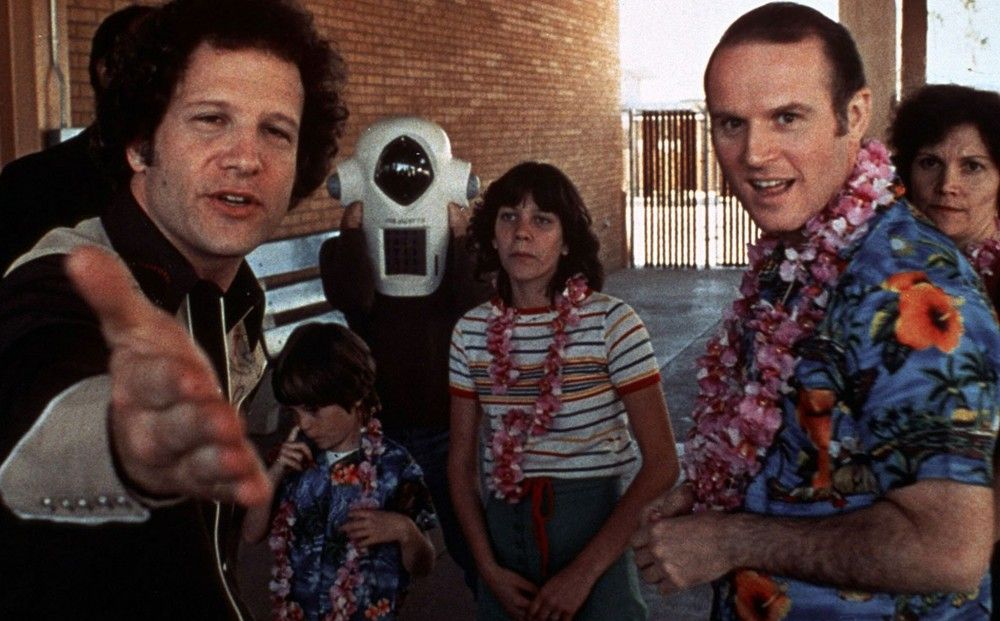Consider the films of Woody Allen; he is a filmmaker who expresses, in his efforts toward self-awareness, the importance of his own intellectual credentials and his own filmic knowledge in thinly disguised references. To achieve what can best be called “intellectual filmmaking for the pretentious”, Allen often stages himself as one of the characters in the film addressing the camera and in turn the audience. There is a Romantic playfulness to the fact that Allen’s characters are aware of the fact that they inhabit the world of a film. This of course is reinforced when those same characters in the same films enact variations of scenes by well-established film directors such as Bergman, Fellini, Bunuel, Lewis, and Dreyer. Another approach to addressing the farcical nature of film within the confines of film comedy itself can be found at its best in Louis C. K.’s Pootie Tang (2001). But in contrast to Annie Hall (1977) or Pootie Tang, in terms of successful strategies for reflexivity in comedy, it becomes only logical to turn to Albert Brooks’ Real Life (1979).

Strangely, Brooks’ most biting and filmicly referential comedy is also his film that is the most like the aforementioned pictures, Real Life (1979). In Real Life Brooks plays himself as a smarmy and pretentious film director who has undertaken a year long documentary on the life of a single suburban family with not only pomp and circumstance, but a myriad of scientific teams and technological innovations.
In one fail swoop Brooks manages to lampoon reality television, film directors, American suburbia, studio executives, and any other party having even the least bit to do with the film industry. Brooks even makes reference to a number of other significant films, such as Gone With The Wind (1939), without having to take his characters out of their own reality with either visual recreations of other films or with monologues delivered to the audience. In effect, though Real Life is about a man making a film, the characters in Real Life are never aware of the film we the audience are viewing, only that film which exists in their world. Another courageous decision on the part of Albert Brooks is to play a character of him named Albert Brooks. Brooks intends to accept reality as a hyper fiction rather than hyper fiction as reality the way Woody Allen does when he appears in his own films.
The primary strength Brooks’ films derive by making their self-awareness circumstantial is that reflexivity can be incorporated, and in some cases inform, the sociological aspects of the films’ satire. What’s strange is that although Albert Brooks provides the perfect blueprint for such a popular form of comedy filmmaking, his films are among some of the most overlooked and under appreciated.
